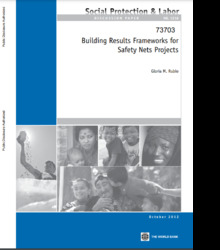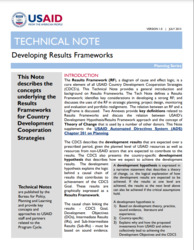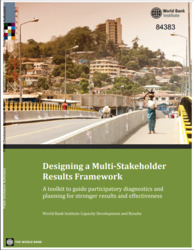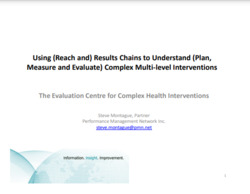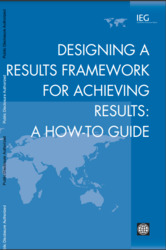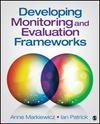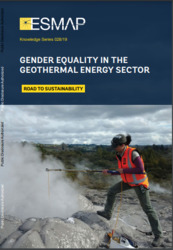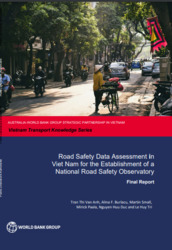Results framework is a logic model which provides a graphical representation of the identified needs and changes required in a project. The results framework categorizes the expected results of a project into a sequence of ‘if-then’ relations. The statements used in RF, thus, delineate the hierarchy of objectives in the project as well as present the vertical logic of the project. In simple words, the statements used in RF follow the logic of: “if we do this, then this will happen.”
A results framework is a diagram of the cause and effect logic for achieving a development objective over a defined time period. The RF uses causal logic, that is. if lower-level results are achieved, then the next higher-level result can be achieved, as long as the critical assumptions hold. Results framework is one of the most vital elements of monitoring and evaluation.
The most commonly used structure and terminology for organizing objective statements in RF are:
- goals,
- strategic objectives,
- intermediate results, and
- outputs.
List of recommended resources #
For a broad overview: #
Building Results Frameworks for Safety Nets Projects
The discussion paper by Gloria M. Rubio provides guidance to individuals preparing social safety net (SSN) projects. It explains how result chains are useful tools to clarify safety nets programs’ objectives, verify the program internal logic, and guide the selection of indicators.
This technical note by the USAID describes the key concepts underlying the results framework.
Toolkit: Designing a Multi-Stakeholder Results Framework
This toolkit, prepared by World Bank Institute Capacity Development and Results, offers resources to support the creation of an outcome-based results framework for a multi-stakeholder strategy. It gives special attention to the fragile country context for development practitioners who work in this area.
This succinct powerpoint compiled by Steve Montague presents how the results framework can be used to effectively understand complex multi-level interventions.
For in depth understanding #
Designing a Results Framework for Achieving Results: A How-to Guide
With a variety of examples and references of results framework used at various levels, this in-depth guide by Dawn Roberts and Nidhi Khattri, provides a clear articulation about designing a results framework for development effectiveness.
Developing Monitoring and Evaluation Frameworks
Written by Anne Markiewicz and Ian Patrick, this book provides a clear, step-by-step guide on how to develop a results framework for monitoring and evaluation in an integrated, logical and systematic way.
Case study #
Gender Equality in The Geothermal Energy Sector: Road to Sustainability
The report, prepared by World Bank Group’s Energy Sector Management Assistance Program (ESMAP), makes use of the results framework and provides a primer on advancing gender equality in the geothermal energy sector.
Road Safety Data Assessment in Viet Nam for the Establishment of a National Road Safety Observatory
This report, prepared by the Transport Global Practice of the World Bank, observes the importance of a results framework in achieving significant and sustainable reductions in serious road trauma in Vietnam.


